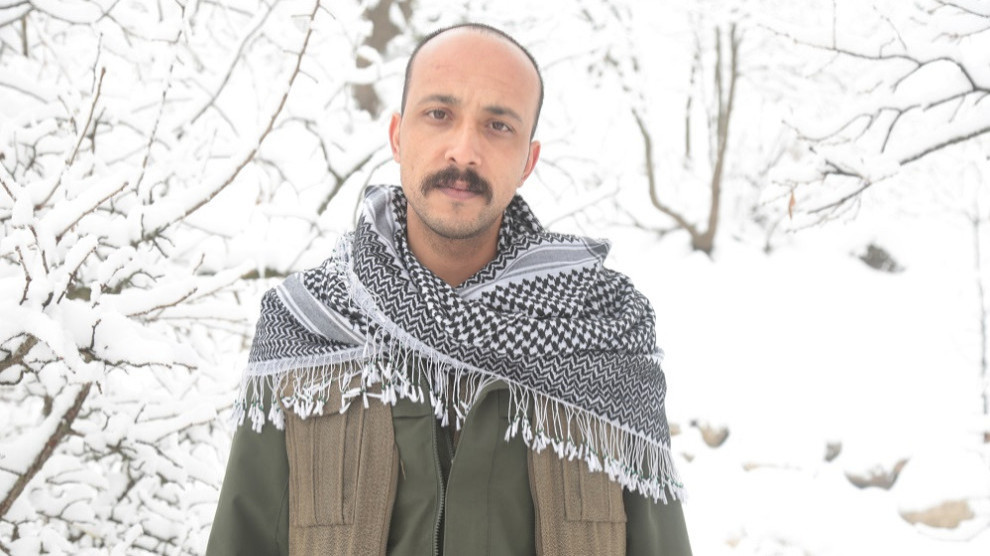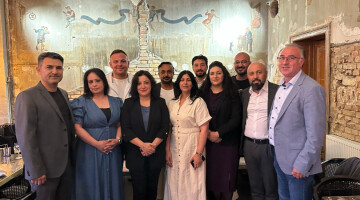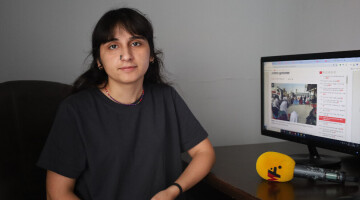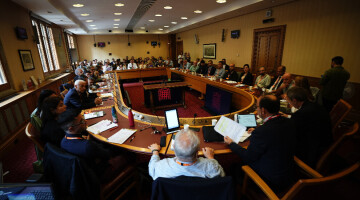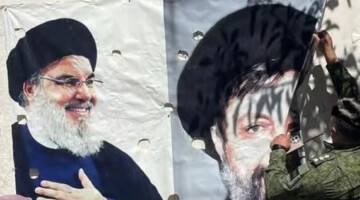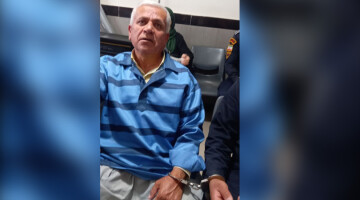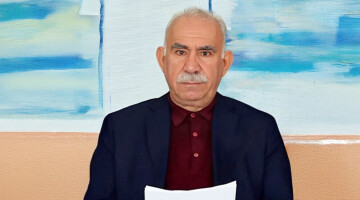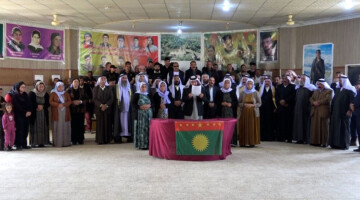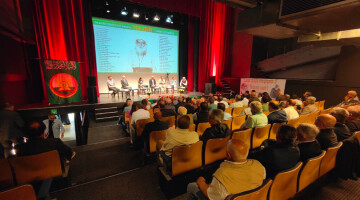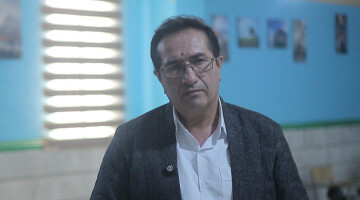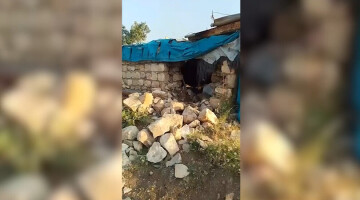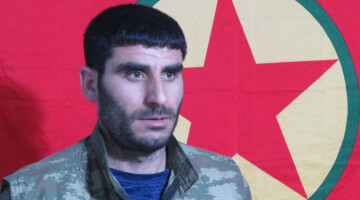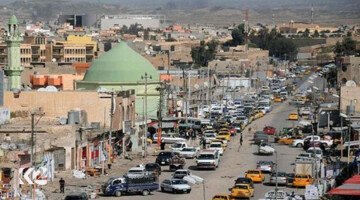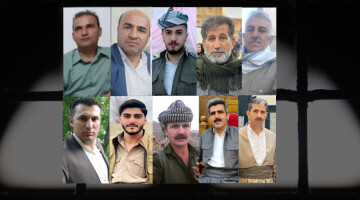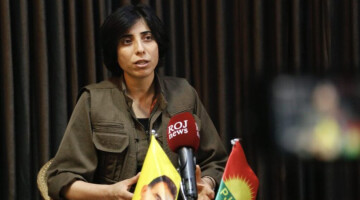HPG fighter Serdem Qamişlo comes from an Arab-Alevi family from Syria. He got to know the PKK for the first time in Konya in Turkey and is now with the guerrillas. In the mountains of Kurdistan, he told his story to ANF.
Serdem Qamişlo was born in 1988 in Damascus, where he later studied law. In 2008 he did his military service in Syria. Afterwards he married, according to the traditions of his family. He is father of a child. When the attacks of the ISIS and the Al-Nusra front began in 2013, he went to Turkey. There he heard about the PKK for the first time from a friend. He read Abdullah Öcalan's defense writings and then joined the guerrillas.
"I wanted to be a policeman"
"When I was at university, I wanted to be a policeman for the regime. I studied law for two years. I failed the police entrance exam, so I joined the military. I did two years of military service. When I finished, the uprisings against the regime started. I saw how people were tortured and how the regime curtailed the freedom of the people. This changed my views, I rejected the regime," Serdem Qamişlo tells.
"The FSA was a good movement in the beginning"
During this time he became acquainted with various groups that rebelled against the Syrian government: "The Free Syrian Army was a good movement in the beginning, it had a goal that it pursued. Then it moved further and further away from it, stole and plundered. For this reason it was rejected by the population and I did not join it. Then there was the Al-Nusra front, which was created in the name of religion. It has rejected all religions except Islam and has acted cruelly against other peoples and faiths. I have seen this with my own eyes. Just like the regime, it has put people in prison and tortured them. In its practice and way of thinking, it was no different from the regime."
"Öcalan's perspective on freedom was different"
In 2013, the current guerrilla fighter fled to Turkey: "My journey through Turkey and Northern Kurdistan led me first to Istanbul, Antalya, Nusaybin and finally to Konya. There I found work. One day I was travelling with a Turkmen friend from Syria. While we were walking along the road, there was an explosion in an MIT (Turkish intelligence service) building and we saw a group with Turkish flags gathering there. I asked my friend if people were protesting against the state. He said: “Here is Konya, people would never dare to do something like that. They are protesting against the PKK because they believe that the PKK is responsible for the explosion.”
From that moment Serdem Qamişlo started to get to know the PKK. He researched on the Internet and read the books of Abdullah Öcalan: "For me these were completely new perspectives. It was the first time I met such a definition of freedom. Within the system, a twisted concept of individual freedom has emerged on the basis of the liberal ideology of capitalism. What Rêber Apo [Abdullah Öcalan] is talking about is the freedom of society based on the liberation of women."
By the YPG in Qamishlo
Serdem Qamişlo returned to Damascus and went to Qamishlo in 2015 to learn about the Rojava revolution: "It was there that I first noticed the autonomous system that the YPG had built. It was immediately understood that the YPG is a People's Army for Freedom of the Peoples of the Middle East and all humanity, fighting against terrorist organizations like the ISIS. I talked to the people of the YPG and asked them many questions. We discussed the ideas of Rêber Apo and I understood more and more that they are not only fighting for the Kurds but for all peoples in the Middle East to live together freely and equally. Therefore, and in order to fight against the ISIS, I went to Asayish (Public Security) of the YPG in Qamishlo."
Not only with the gun
In 2018 Serdem Qamişlo finally joined the guerrillas: "In the mountains I first took part in training for new fighters and dealt with ideological and military issues. I understood that the biggest fight is not fought with a weapon but means the fight against one's own personality in life. We do not fight for the foundation of a state or to defend a state, but for the freedom of all peoples. In guerrilla warfare, there is equality in every respect. Women and men live here in the same way. Life in the guerrilla is completely different. It doesn't matter if it's hot or cold or the conditions are difficult, we support each other in a collective way on every issue. This feeling of comradeship doesn't exist anywhere else, it's the core of the PKK."

